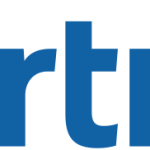- Industry: Consulting
- Number of terms: 1807
- Number of blossaries: 2
- Company Profile:
Gartner delivers technology research to global technology business leaders to make informed decisions on key initiatives.
Designation in Six Sigma of a practitioner who has achieved the basic understanding of Six Sigma techniques and is qualified to lead Six Sigma process improvement projects.
Industry:Technology
Describes the import and sale of mobile devices outside regular commercial channels as defined by the original manufacturer or the relevant government, creating a parallel market to authorized distribution channels.
Industry:Technology
A graphics-based operating system interface that uses icons, menus and a mouse (to click on the icon or pull down the menus) to manage interaction with the system. Developed by Xerox, the GUI was popularized by the Apple Macintosh in the 1980s. At the time, Microsoft’s operating system, MS-DOS, required the user to type specific commands, but the company’s GUI, Microsoft Windows, is now the dominant user interface for personal computers (PCs). A comprehensive GUI environment includes four components: a graphics library, a user interface toolkit, a user interface style guide and consistent applications. The graphics library provides a high-level graphics programming interface. The user interface toolkit, built on top of the graphics library, provides application programs with mechanisms for creating and managing the dialogue elements of the windows, icons, menus, pointers and scroll bars (WIMPS) interface. The user interface style guide specifies how applications should employ the dialogue elements to present a consistent, easy-to-use environment (i.e., “look and feel”) to the user. Application program conformance with a single user interface style is the primary determinant of ease of learning and use, and thus, of application effectiveness and user productivity.
Industry:Technology
The ability to increase a system’s capacity and performance through incremental processor expansion.
Industry:Technology
Glonass is a global satellite positioning system run by the Russian Ministry of Defence. It runs parallel to the U.S. GPS system and the planned Galileo system (currently being built by the European Union (EU) and European Space Agency (ESA)), and its signals can be reached by any user of a Glonass receiver globally (once all satellites are available).
Industry:Technology
Global regulatory management represents key capabilities that a life science company must possess to operate in a global regulatory environment that is increasingly complex and in a state of continuous change. Key capabilities that we will highlight are clinical trial disclosure, product registrations and submission tracking/management. Each capability area addresses a discrete but related need, driven by regulatory authorities around the globe, that must be met to be able to gain product approvals, market authorizations to sell, and management of key processes to maintain compliance in each country that a life science company operates in. These capabilities coexist with and leverage other systems, such as regulatory document management and submission systems.
Industry:Technology
GPS is a global positioning technology that was introduced in the U.S. in 1996, and was originally developed for military purposes. To determine the position of a mobile device, the GPS system uses from two to six of its 24 satellites to a high level of accuracy—of within just a few meters.
Industry:Technology
Gartner defines a global delivery model as “the optimum combination of processes, end-to-end methodologies and quality procedures, with high-quality skills and resources available internally or externally, in requisite quantities, on a global basis, that enables organizations to maximize the quality of their solutions while minimizing the overall cost and delivery time of their IT services.”
Industry:Technology
Global delivery is the technical skills, process rigor, tools, methodologies, overall structure and strategies for seamlessly delivering IT-enabled services (IT or business process services) from global locations. Global delivery locations are broadly categorized as being inclusive of four options: onsite, onshore, nearshore and offshore (see “Offshore Services”).
Industry:Technology
